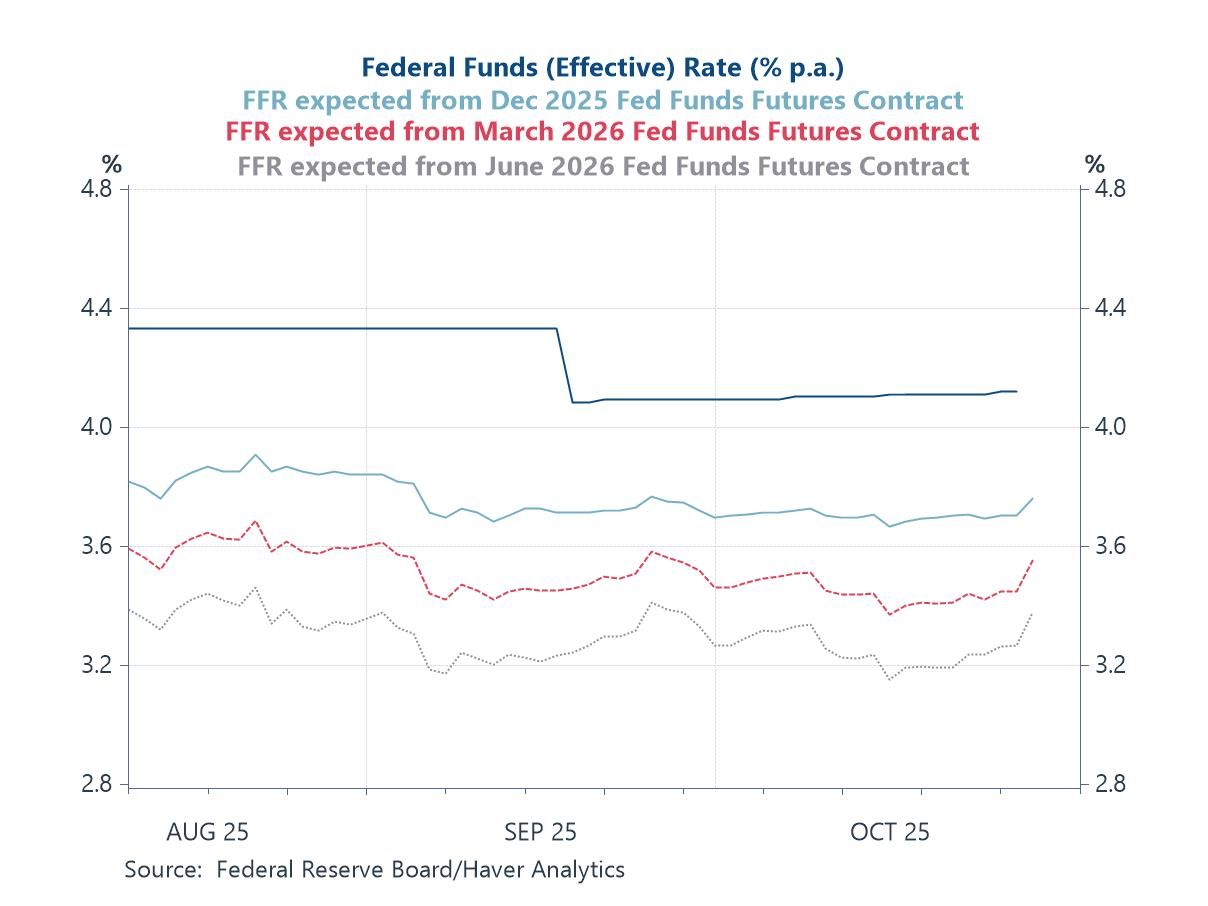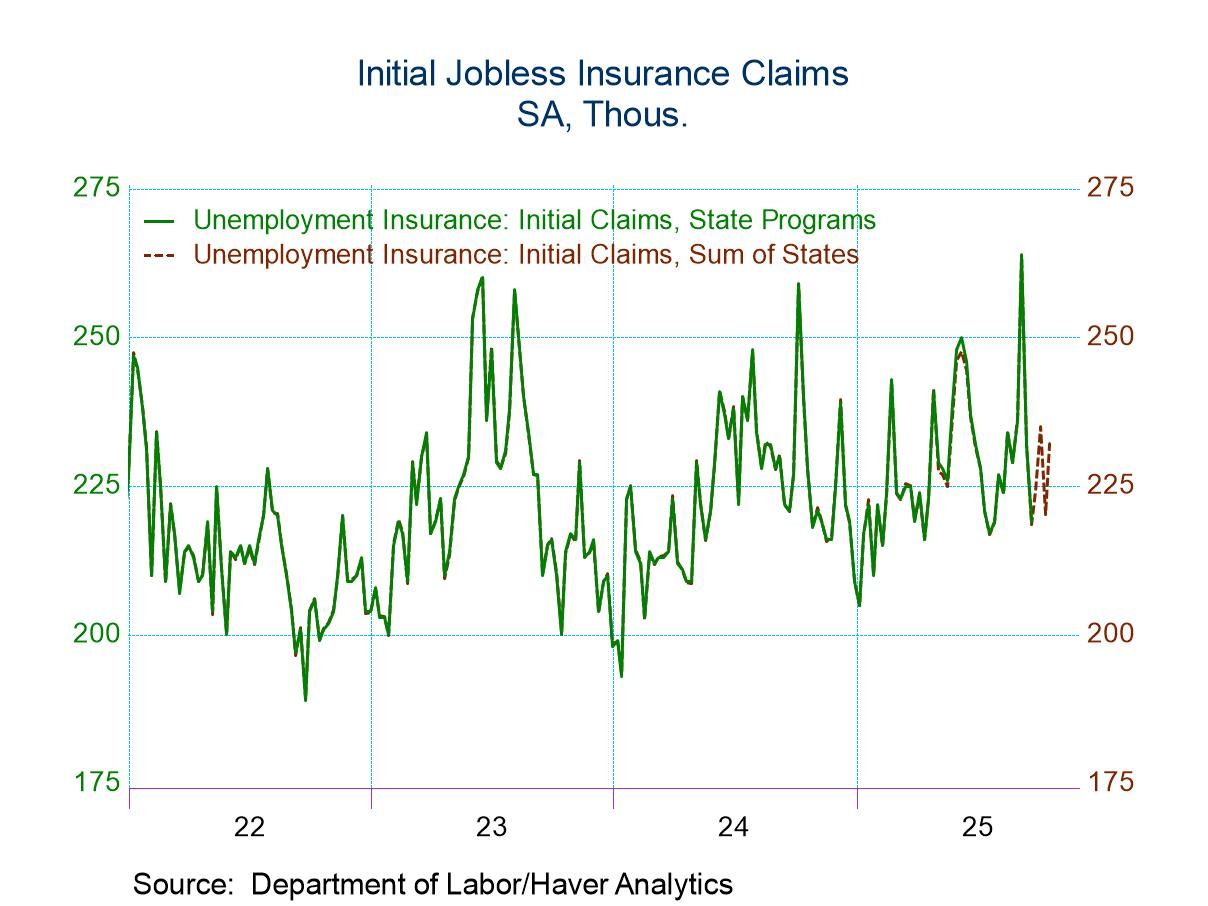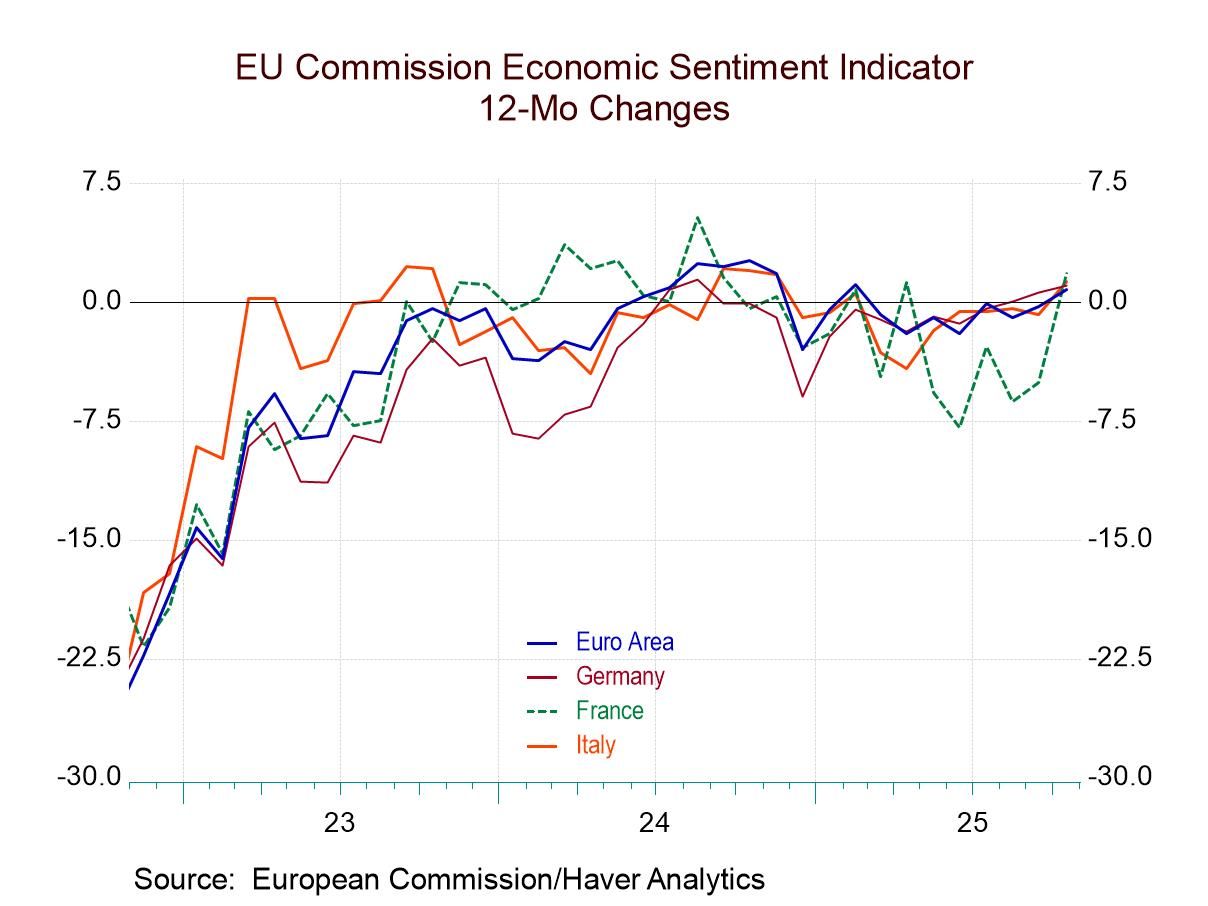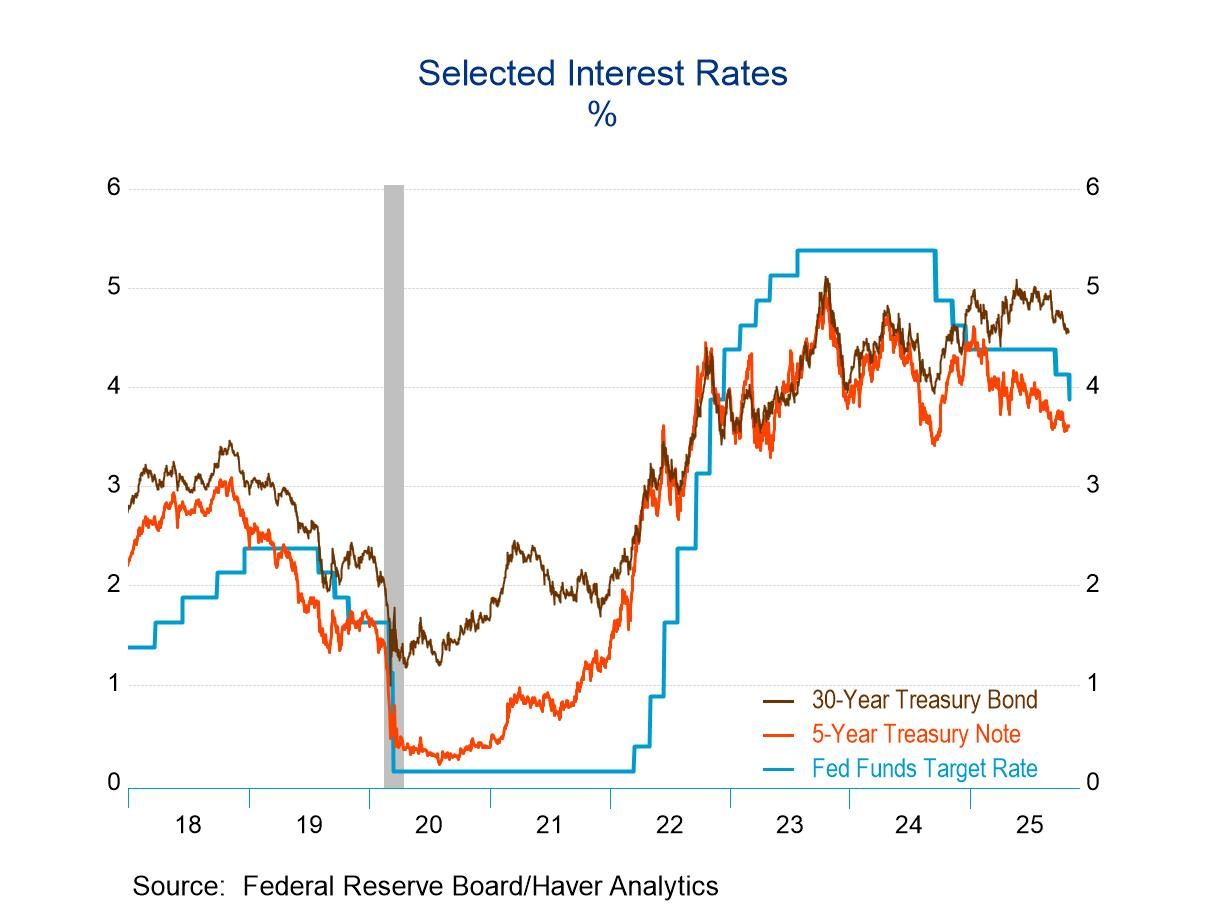 Global| Nov 05 2008
Global| Nov 05 2008U.S. ISM Nonmanufacturing Index Fell Sharply: Recession Indicated
by:Tom Moeller
|in:Economy in Brief
Summary
The Composite Index for the nonmanufacturing sector from the Institute for Supply Management fell sharply in October. It declined to 44.4 from an unrevised 50.2 during September. The figure, which was weaker than Consensus [...]
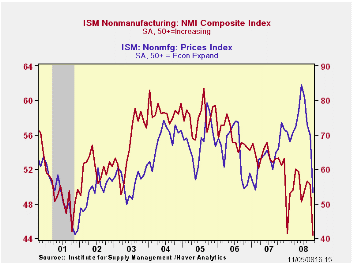
The Composite Index for the nonmanufacturing sector from the Institute for Supply Management fell sharply in October. It declined to 44.4 from an unrevised 50.2 during September. The figure, which was weaker than Consensus expectations, was the lowest in the series' relatively brief ten year history.It rivaled the low during the 2001 recession.
The nonmanufacturing business activity sub-index also fell sharply to 44.2 which was the lowest level since this past January. Each figure was the lowest since the last recession. Since the series' inception in 1997 there has been a 48% correlation between the level of the business activity index for the nonmanufacturing sector and the Q/Q change in real GDP for the services and the construction sectors.
The employment index fell to 41.5, a new low for the series. Since the series' inception in 1997 there has been a 56% correlation between the level of the ISM nonmanufacturing employment index and the m/m change in payroll employment in the service-producing plus the construction industries.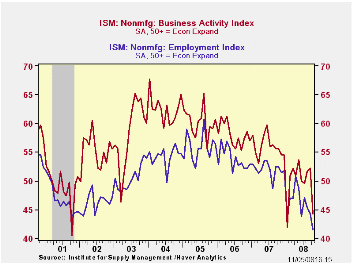
The new orders sub-index fell sharply to a recession level of 44.0.
Pricing power also collapsed. The reading of 53.4 was its lowest level since 2003. Since inception ten years ago, there has been a 60% correlation between the price index and the q/q change in the GDP services chain price index.Beginning with the January 2008 Nonmanufacturing Report On Business®, the composite index is calculated as an indicator of the overall economic condition for the non-manufacturing sector. It is a composite index based on the diffusion indexes for four of the indicators (business activity, new orders, employment and supplier deliveries) with equal weights. The latest report from the ISM can be found here.
ISM surveys more than 370 purchasing managers in more than 62 industries including law firms, hospitals, government and retailers. The nonmanufacturing survey dates back to July 1997.
Interpreting the Great Moderation: changes in the volatility of economic activity at the macro and micro levels from the Federal Reserve Bank of New York can be found here.
| ISM Nonmanufacturing Survey | October | September | October '07 | 2007 | 2006 | 2005 |
|---|---|---|---|---|---|---|
| Composite Index | 44.4 | 50.2 | 53.3 | 53.5 | 55.7 | 58.0 |
| Prices Index | 53.4 | 70.0 | 66.1 | 63.8 | 65.3 | 68.0 |
Tom Moeller
AuthorMore in Author Profile »Prior to joining Haver Analytics in 2000, Mr. Moeller worked as the Economist at Chancellor Capital Management from 1985 to 1999. There, he developed comprehensive economic forecasts and interpreted economic data for equity and fixed income portfolio managers. Also at Chancellor, Mr. Moeller worked as an equity analyst and was responsible for researching and rating companies in the economically sensitive automobile and housing industries for investment in Chancellor’s equity portfolio. Prior to joining Chancellor, Mr. Moeller was an Economist at Citibank from 1979 to 1984. He also analyzed pricing behavior in the metals industry for the Council on Wage and Price Stability in Washington, D.C. In 1999, Mr. Moeller received the award for most accurate forecast from the Forecasters' Club of New York. From 1990 to 1992 he was President of the New York Association for Business Economists. Mr. Moeller earned an M.B.A. in Finance from Fordham University, where he graduated in 1987. He holds a Bachelor of Arts in Economics from George Washington University.



